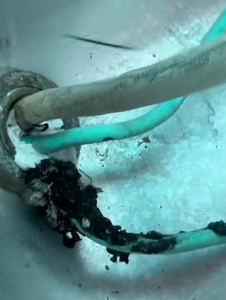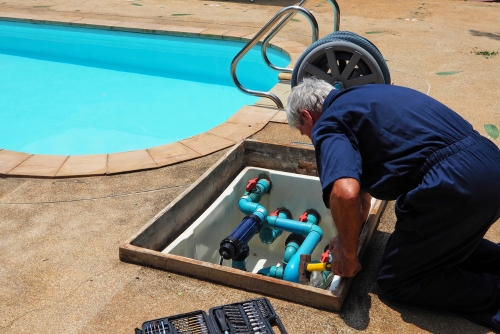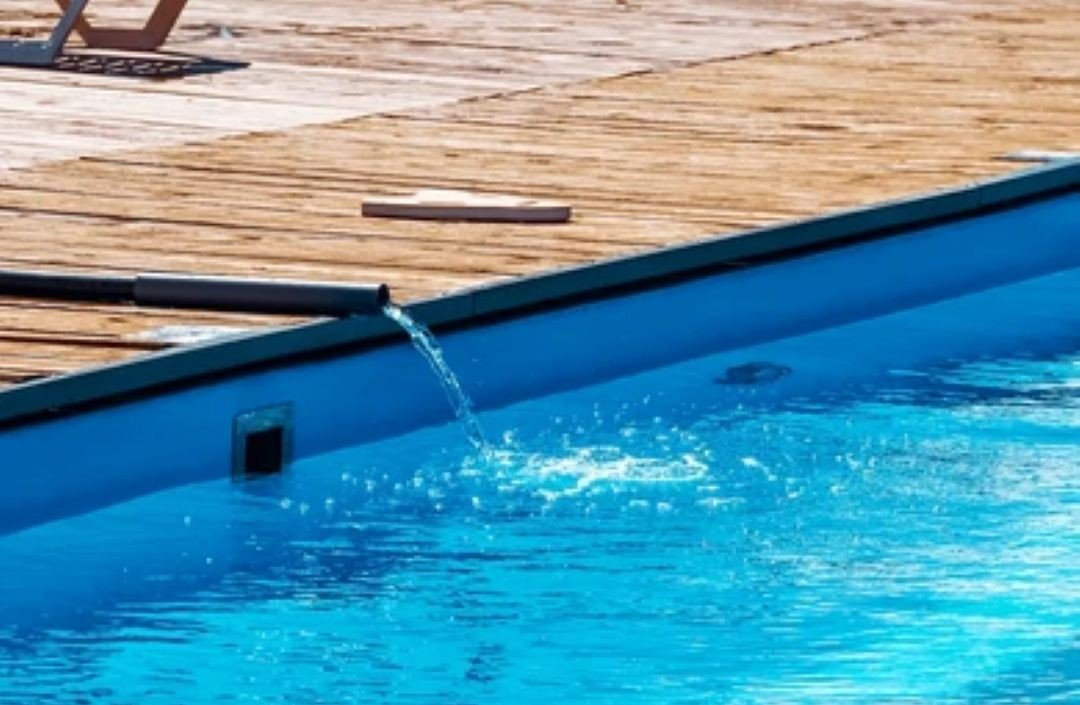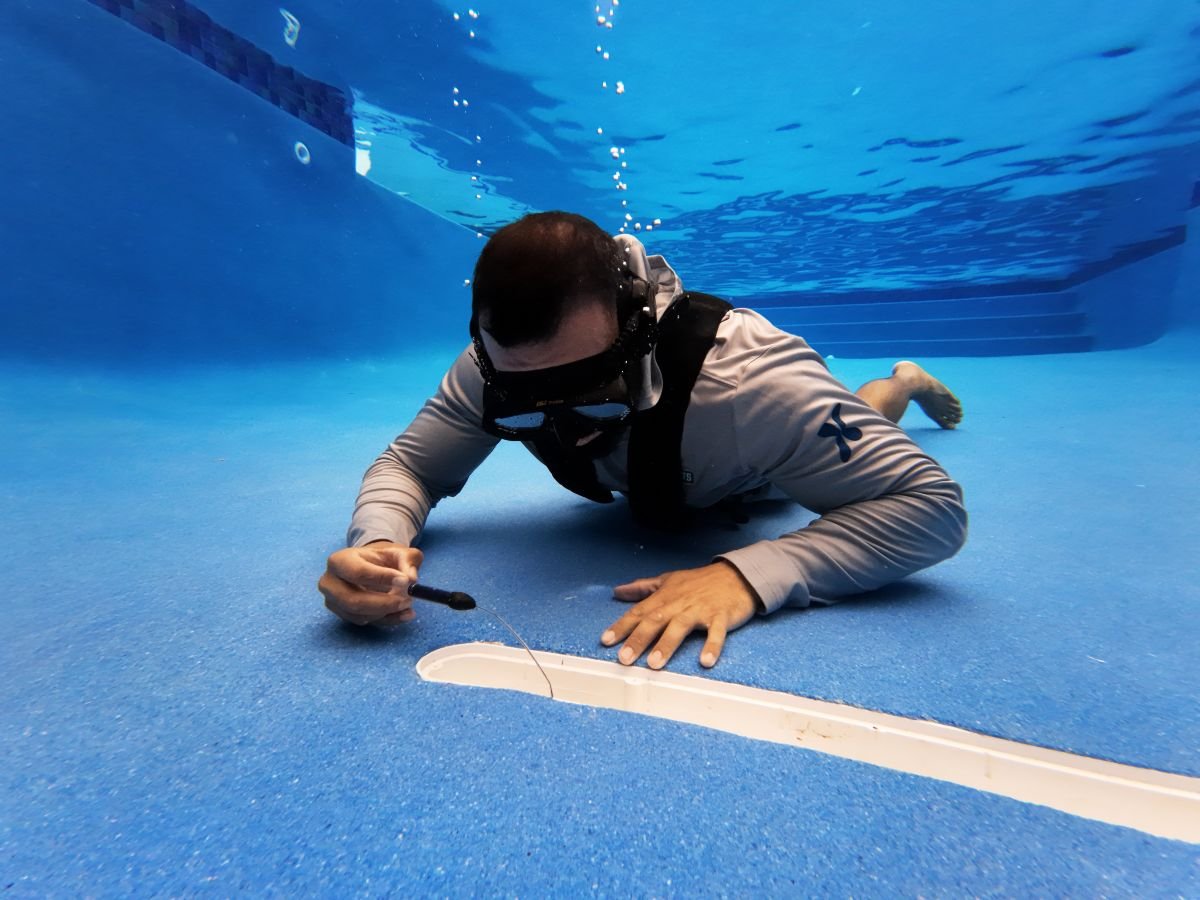Pool leaks are more than just an inconvenience—they can lead to significant issues that affect the functionality, safety, and cost-efficiency of your pool. Beyond the visible water loss, leaks can disrupt water chemistry, place unnecessary strain on equipment, and shorten the lifespan of your pool system. This blog post explores these impacts in detail, helping you understand why addressing leaks is crucial for maintaining your pool.
Impact of Pool Leaks on Water Chemistry
Maintaining balanced water chemistry is critical for a safe and enjoyable swimming experience. A pool leak can drastically affect this balance in several ways:
Dilution of Chemicals:
As water leaks out and fresh water enters to compensate, the concentration of chemicals like chlorine and pH adjusters decreases. This dilution reduces sanitation, increases the risk of bacteria and algae growth, and makes it harder to maintain consistent chemical levels, requiring frequent testing and rebalancing.
Saltwater Pool Challenges:
For saltwater pools, leaks result in the loss of both water and salt, disrupting the delicate balance required for the saltwater chlorination system. This can lead to inefficient chlorine generation and increased operational expenses.
Effects on Pool Equipment Longevity
Pool equipment, such as pumps, filters, and heaters, is designed to operate under specific conditions. A leak can create an imbalance that compromises their performance and lifespan.
Strain on Pool Pumps and Reduced Efficiency of Filters:
A leak can cause the water level to drop below the skimmer line, allowing air to enter the pump. This can lead to cavitation, motor damage, and an increased workload as the pump struggles to maintain circulation, resulting in overheating and excessive wear.
When leaks occur, debris and dirt can enter the pool through cracks, overworking the filtration system. This can cause clogged filters that require frequent cleaning or replacement and increase energy consumption as the system works harder to filter water.
Damage to Heaters and Plumbing:
Low water levels caused by leaks can also prevent heaters from functioning correctly, potentially leading to overheating or failure. Additionally, leaks expose pipes and fittings to air, increasing the likelihood of corrosion and joint damage.
Consequences of Ignoring Pool Leaks
Beyond water chemistry and equipment, leaks can significantly weaken the structural integrity of your pool and its surrounding areas. Water escaping from the pool can erode the soil beneath the pool structure, leading to cracks in the pool shell or deck. In severe cases, it can even create sinkholes or uneven ground around the pool area.
Persistent leaks can also damage aesthetic features, such as loosening tiles or harming grout joints, particularly in regions where water pressure fluctuates. Additionally, leaks near the foundation of your home or pool house pose a serious risk, potentially causing long-term structural damage that requires costly repairs.

Leak in a Pool Conduit
Signs of a Pool Leak
Detecting a pool leak early is essential to prevent these adverse effects. Look out for these warning signs:
Unexplained Water Loss: Pools lose water naturally to evaporation, but significant daily drops may indicate a leak.
Chemical Imbalance: Frequent adjustments to pH or chlorine levels could signal a leak disrupting water chemistry.
Visible Cracks or Wet Spots: Cracks in the pool structure or soggy ground around the pool are strong indicators of a leak.
Air in Pump System: Bubbles coming from return jets or noisy pumps often point to air entering the system through a leak.
Preventing Pool Leaks
Prevention is better than cure, especially when it comes to pool leaks. To maintain your pool’s integrity, conduct regular inspections to check for cracks, loose tiles, or other signs of wear and tear at least once a season, and always keep the water level above the skimmer line to protect the pump and other equipment. Additionally, in colder climates, ensure proper winterization to prevent freeze damage.
The Cost of Ignoring a Pool Leak
Delaying leak repairs may seem like a way to save money initially, but it often results in higher expenses over time. Persistent leaks increase water and chemical costs due to constant refilling and rebalancing.
In addition, damaged pumps or filters may require costly repairs or replacements, potentially amounting to thousands of dollars. Structural issues, such as eroded soil or cracked pool shells, can also become significant financial burdens, highlighting the importance of timely leak detection and repair as a more cost-effective solution overall.
Why Choose Professional Leak Detection Services?
As experts in pool maintenance and repair, we understand the complex relationship between water chemistry, equipment performance, and structural integrity. Our professional leak detection services address all aspects of pool care, utilizing state-of-the-art technology to perform comprehensive inspections and accurately locate leaks.
We offer customized solutions, whether it’s minor repairs or major renovations, tailored to meet your specific needs. Additionally, our preventative maintenance plans ensure that your pool remains in optimal condition year-round with regular check-ups and ongoing care.
Pool leaks are more than just an inconvenience—they threaten the health, safety, and longevity of your pool. By understanding how leaks affect water chemistry, equipment, and structure, you can take proactive steps to address issues early and prevent costly repairs.
If you suspect your pool leaks, don’t wait. Contact our professional team today to schedule a thorough inspection and ensure your pool remains a source of enjoyment for years to come. You can call us at (561) 933-4556 or email us at info@jesus.viniarte.com.br.




